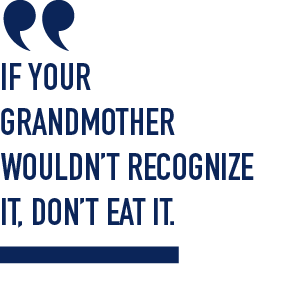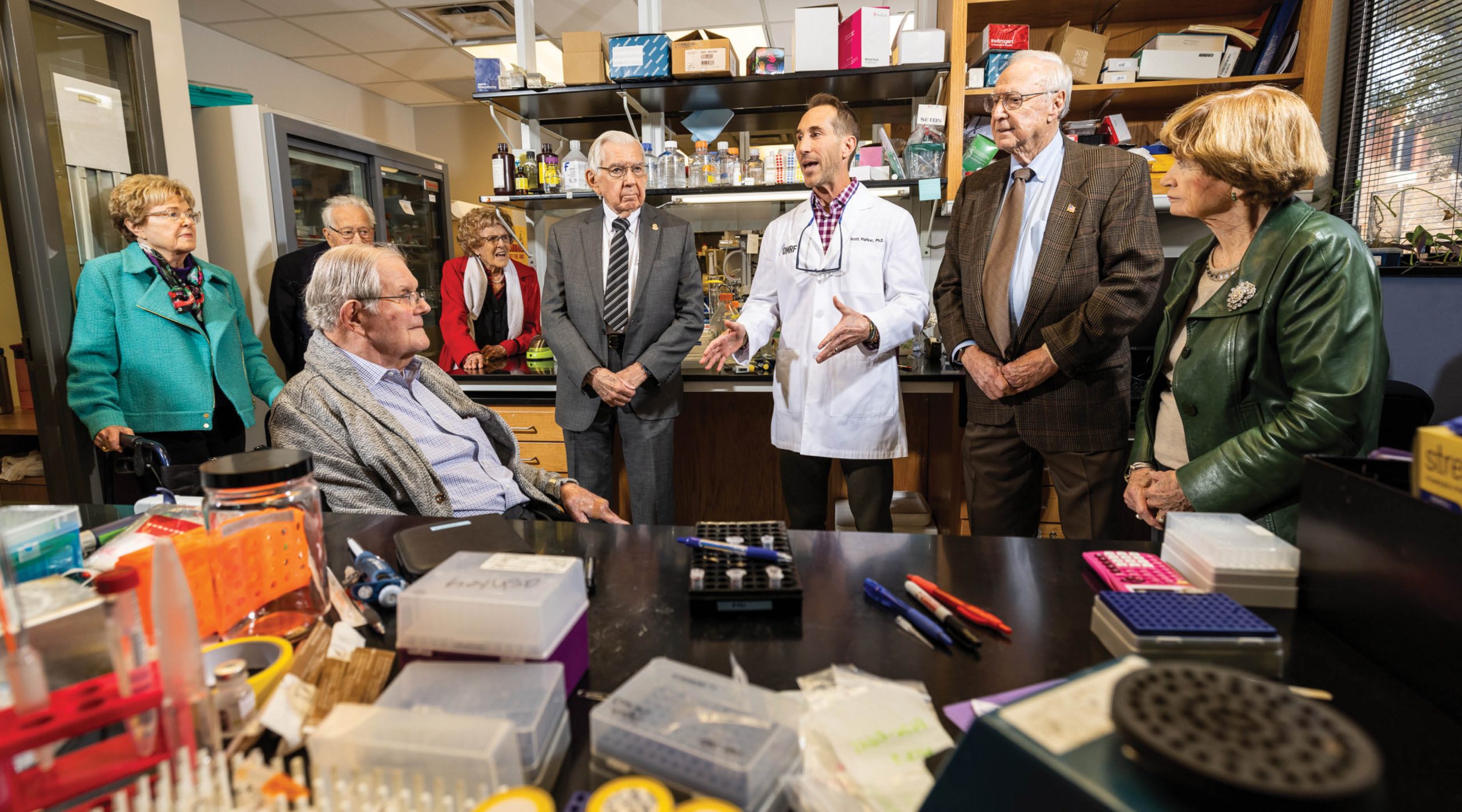December
The Nonagenarian Society gets – and gives – a lesson in healthy aging.
 The questions flew fast and furious.
The questions flew fast and furious.
How do OMRF scientists share their findings with physicians? What level of detail do researchers include in their grant proposals to funding agencies? How many individual patient samples were used for a particular research project on chemotherapy resistance?
The questioners weren’t undergraduate students. Nor doctoral candidates. They were Oklahomans visiting OMRF, and they all had something else in common: Each was at least 90 years old.
The event was a meeting of the Oklahoma Nonagenarian Society, the brainchild of longtime OMRF Board member H.E. “Gene” Rainbolt. On the heels of his 90th birthday, he had the idea “for people in this age group to participate, learn and support the research being done to help us all live longer and healthier lives.”
The group held its first meeting in the fall of 2019, but the pandemic kept the planned follow-up on ice until December 2022, when almost a dozen members gathered at OMRF. Over lunch, they listened to a presentation from Dr. Jake Kirkland describing his efforts to improve cancer treatments. They then visited a lab in OMRF’s Aging & Metabolism Research Program, where the Nonagenarians – led by Dr. William Parry, 98, a retired urologist – peppered Dr. Scott Plafker with inquiries about his studies on the interplay between diet and health.
“If your grandmother wouldn’t recognize it,” said Plafker, “don’t eat it.” Members of the group nodded.
While the OMRF scientist recommended avoiding highly processed foods and minimizing the intake of starches and sugars, he acknowledged that his long-lived audience might take his advice with a grain of salt. “Just keep doing what you’re doing, because it seems to be working for you.”
Dr. Kay Goebel, who interned at OMRF during her Ph.D. training, was excited to revisit what she called “an outstanding institution.” As an OMRF supporter, she was gratified to see the many ways in which her investments in research are paying dividends.
“The science is very interesting,” says Goebel, 93, who walks two to three miles most days. “And I especially appreciate the practical tips from research that I can use in my daily life.”



